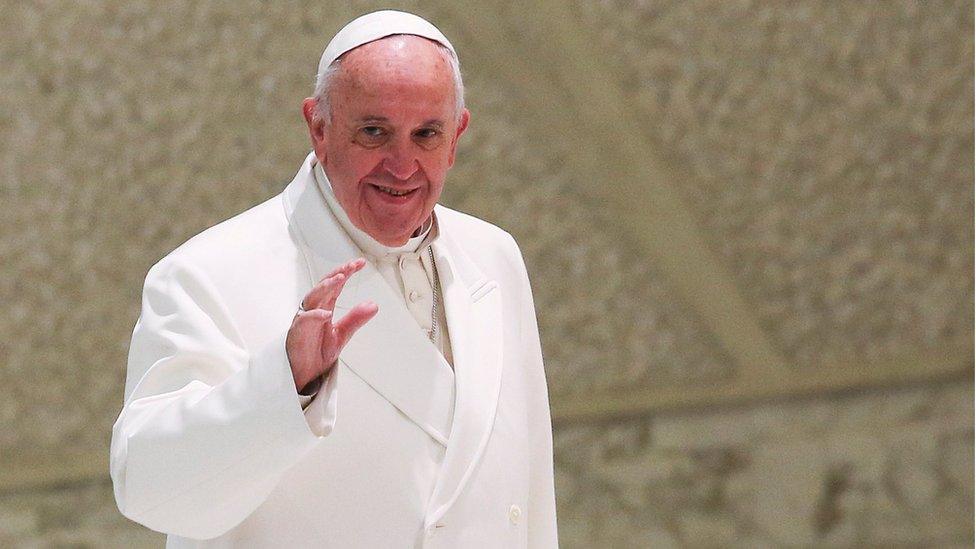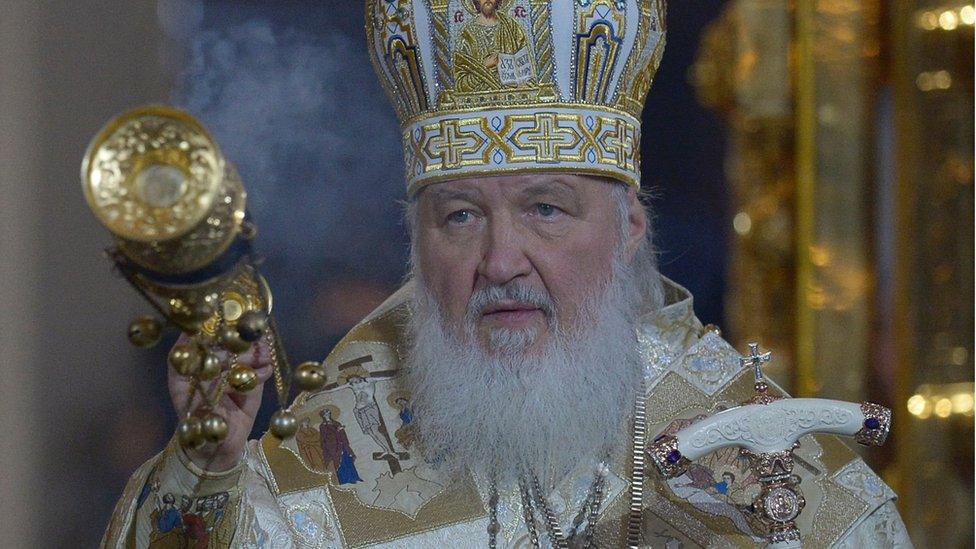Pope Francis set for historic Orthodox Patriarch meeting
- Published

Pope Francis, seen here at the Vatican, will stop over in Cuba on his way to Mexico
Pope Francis will hold a historic first meeting with Patriarch Kirill, the head of Russian Orthodox Church, in Cuba next week.
The Russian Orthodox Church said the "persecution of Christians" would be the central theme of the meeting.
Pope Francis will stop over in Cuba on his way to Mexico.
It is the first papal meeting with a Russian Church head since the Western and Eastern branches of Christianity split in the 11th Century.
The meeting is due to take place at Havana airport, where the two leaders will sign a joint declaration.
Patriarch Kirill is due in Cuba for an official visit at the same time as Pope Francis's stopover in Havana.

Patriarch Kirill has been the head of the Russian Orthodox Church since February 2009
In a joint statement, the two churches said the meeting would "mark an important stage in relations between the two churches".
They invited "all Christians to pray fervently for God to bless this meeting, that it may bear good fruits".
Since becoming Pope in 2013, Pope Francis has called for better relations between the different branches of Christianity.

Analysis: BBC's David Willey in Rome
There has been some creative thinking on both sides in arranging this unprecedented first meeting between the leaders of the Catholic and Russian Orthodox churches.
Previous attempts by Francis's predecessors to arrange a get-together in Eastern Europe - or even in in Cyprus - foundered because the Russians have always suspected that it is Rome's secret intention to poach converts from inside traditionally Orthodox lands.
The Holy See has always suspected that the separation between church and state in Russia has never been really clear even since the days of the tsars.
By arranging this meeting in Cuba - a different hemisphere far from Rome, Moscow and Constantinople with all their historical baggage of schism and religious conflict - Pope Francis and Patriarch Kirill can afford to concentrate on the real dangers faced by both faith communities in the 21st Century: the risk that the ancient Christian presence, both Catholic and Orthodox, in the whole of the Middle East will be eradicated during current waves of persecution.

The foreign policy chief of the Russian Orthodox Church, Metropolitan Illarion, told reporters that there were still differences between the two churches, in particular on western Ukraine.
One particular issue is the Ukrainian Greek Catholic Church, which follows eastern church rites but answers to the Holy See.
The Russian Orthodox Church has considered western Ukraine its traditional territory, resenting papal influence there.
But Metropolitan Illarion said that international events had pushed the leaders to meet.
He said: "The situation in the Middle East, in northern and central Africa and in other regions where extremists are perpetrating a genocide of Christians, requires immediate action and an even closer co-operation between Christian churches.
"In this tragic situation, we need to put aside internal disagreements and pool efforts to save Christianity in the regions where it is subject to most severe persecution."
Patriarch Kirill has been the head of the Russian Orthodox Church since February 2009, while Pope Francis took up his role in March 2013.
The Roman Catholic Church has more than a billion members worldwide, while the Russian Orthodox Church numbers about 165 million.
The Orthodox Church is made up of a number of separate churches around the world.
The Vatican has existing ties with the Istanbul-based Ecumenical Patriarch, Bartholomew I, but this will be the first meeting between the Pope and the patriarch of the Russian Church, which is the largest and most powerful Church in Orthodoxy.